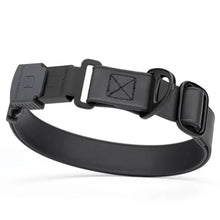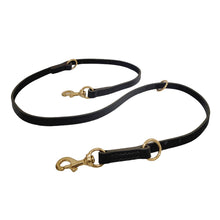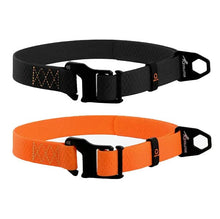What To Feed Your German Shepherd With IBD

IBD, or irritable bowel disease, in dogs can be difficult to manage and miserable for both dog and owner. This chronic condition is a disorder of the gastrointestinal system that causes inflammation in the dog’s intestinal tract.
Sometimes IBD and IBS (irritable bowel syndrome) are confused. Although the physical symptoms are similar, they are caused by different things. IBS is triggered, usually by stress or anxiety while IBD is a chronic condition.

What is IBD?
The inflammation caused by IBD is due to an immune reaction from constant irritation of the dog’s intestinal tract. This is due to an invasion of inflammatory cells, which end up interfering with the dog’s ability to digest and absorb nutrients from their food.
Much like an allergic reaction, the dog’s body is responding to the inflammation, which causes diarrhea, vomiting, poor appetite, and weight loss. It should also be noted that some dogs with IBD may also suffer from bouts of pancreatitis, which may or may not be reoccurring.

The symptoms of IBD include:
• Diarrhea
• Blood in stool
• Constipation
• Abdominal Pain
• Bloating
• Gas
• Vomiting
• Picky eating
• Weight loss
• Lethargy
• Fever
Causes of IBD
The causes of IBD are many and can also be idiopathic, which means the exact cause cannot be found. However, some triggers include illness, allergies, and stress. In some dogs, their flare-ups only occur when they are stressed or anxious. Meanwhile, the unlucky dogs have chronic symptoms that must be managed daily.

Diagnosing IBD
IBD is usually diagnosed after a dog suffers from vomiting and diarrhea for several miserable months and other health problems have been ruled out. By then both dog and owner are desperate for help and end up at an internal medicine specialist who will take biopsies to determine what specific type of IBD the dog has.
Additional tests to diagnose IBD include fecal samples, blood tests to measure the level of vitamin B12 in the blood, and measurement of folate to check for imbalances in the good and bad bacteria populations, and the ruling out of small intestinal bacterial overgrowth (SIBO).

IBD can be very serious and there is no ‘cure.’ In most cases, the condition can be managed by diet. However, some of the things that make it so complicated are that not all diets and medications work the same for all dogs and the underlying cause of IBD also varies between pets.
Once an owner finds a diet that relieves their dog’s symptoms, they are usually very hesitant to switch foods. However, at times they have to due to availability, change in formula, or the dog suddenly becomes intolerant to their current food.
Finding The Right Diet For Your Dog
Finding the right food to feed an IBD dog can take trial and error and it’s best to work with a veterinarian. The vet will usually recommend a therapeutic diet. Most likely the dog will be on it the rest of their life, as long as they continue to tolerate it and it’s available.
Some of the diet considerations will include the amount of fat fed on a dry matter basis (it is not uncommon for IBD dogs to need a diet lower in fat), more or less fiber, eliminating food sensitivities, and possibly finding a novel protein the dog hasn’t been exposed to before.

IBD dogs are usually fed a prescription diet or hydrolyzed diet. Some are fed a homemade diet with the help of a veterinarian nutritionist (keep in mind anyone can call themselves a nutritionist and an actual DVM nutritionist is needed).
Although prescription diets are more expensive, they usually pay for themselves in the long run since they equal a healthier, happier dog with fewer visits to the vet. If a prescription diet is not used, look for a diet that is:
• Easy to digest.
• High quality
• Minimal additives
• Limited ingredient
• High fiber
• Lower fat (ask the vet how much fat)
• Try wet rather than dry since its less processed
• Novel protein (a protein the dog has not eaten before)
The most popular prescription and over the counter easy to digest diets are manufactured by:
• Royal Canin
• Hills Prescription Diet
• Hills Science Diet
• Pro Plan Veterinary Diets
• Purina Pro Plan
• Blue Buffalo Natural Veterinary Diet

Lifelong treatment for IBD includes a combination of diet, supplements, and medications. But managing the dog’s lifestyle can also help control symptoms. Along with a healthy diet, consider the following:
• IBD-friendly treats
• Approved people food only
• Stress reduction
• Enrichment exercises
• Avoidance of triggers
• Acupuncture
• Massage
• Pain management, if needed
We hope this information helps your German shepherd feel better fast. As always, please feel free to share with your friends.
You may also like: 17 Signs Your Dog Is Telling You Something Is Wrong






















